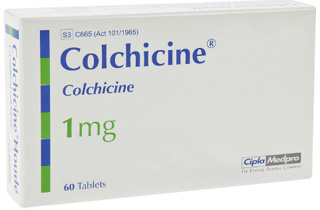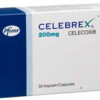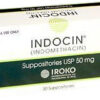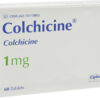Medication Overview
Colchicine is a medication prescribed primarily for the treatment and prevention of gout flare-ups and familial Mediterranean fever. It is derived from the autumn crocus plant and has been utilized in medical practice for centuries. The mechanism of action involves disrupting the process of inflammation by inhibiting the migration of neutrophils and other inflammatory cells to sites of uric acid crystal deposition.
Pharmacological Class
Colchicine belongs to a class of medications known as anti-gout agents. Unlike urate-lowering therapies, which reduce the production or enhance the elimination of uric acid, colchicine specifically targets the inflammatory response triggered by the deposition of uric acid crystals in the joints. This unique classification allows for both acute intervention and prophylactic use in gout management.
Administration Guidelines
Colchicine is available in oral tablet form, with dosing schedules varying based on the condition being treated. For acute gout attacks, initial doses may be higher and subsequently tapered down. For prophylactic use, dosing is generally lower and consistent. It is important that dosing instructions specified by a healthcare professional be followed rigorously to minimize the risk of adverse effects.
Pharmacokinetics Information
After oral administration, colchicine is rapidly absorbed in the gastrointestinal tract, with peak plasma concentrations occurring within one to two hours post-ingestion. Approximately half of the dose binds to plasma proteins. Colchicine is extensively metabolized in the liver and undergoes enterohepatic recirculation. The elimination half-life of colchicine is approximately 27 to 31 hours, with excretion predominantly through feces.
Common Drug Interactions
Colchicine may interact with a variety of other medications. Notably, it should be used cautiously with drugs that inhibit CYP3A4 or P-glycoprotein, as these can increase colchicine plasma concentrations and risk toxicity. Concurrent use with statins or fibrates may enhance the risk of myopathy, while co-administration with digoxin or other cardiac glycosides requires careful monitoring due to potential for pharmacodynamic interactions.
Patient Monitoring Requirements
Patients on colchicine therapy should be regularly monitored for efficacy and safety. Evaluation of therapeutic response includes reduction in occurrence and severity of gout attacks. Additionally, monitoring for adverse reactions is crucial, particularly in long-term therapy. Liver and kidney function tests are recommended due to colchicine’s extensive hepatic metabolism and excretion.
Adverse Effects Profile
Adverse effects associated with colchicine therapy often manifest as gastrointestinal symptoms, including diarrhea, abdominal pain, and nausea. These are usually dose-dependent and can be mitigated by adhering to prescribed dosages. Rare but serious adverse events may involve myopathy and neuromyopathy, particularly in cases of renal impairment or with concurrent use of specific interacting drugs.
Contraindications Overview
Colchicine is contraindicated in patients with hypersensitivity to the drug or any of its components. It is also contraindicated in patients with significant renal or hepatic impairment without dosage adjustment or strict monitoring. Colchicine should be avoided in individuals with preexisting blood disorders or those concurrently using specific interacting drugs known to elevate colchicine concentrations to toxic levels.
Treatment for Overdose
Colchicine overdose can lead to severe toxicity and is a medical emergency. Symptoms may include gastrointestinal distress, neuropathy, multi-organ failure, and potential fatality. Immediate medical intervention is required, which may involve gastrointestinal decontamination, supportive treatment focused on symptomatic relief, and monitoring for complications such as renal or hepatic failure.
Special Populations Considerations
In geriatric patients, careful dosage adjustment is warranted due to altered pharmacokinetics and increased risk of toxicity. For pediatric use, colchicine is primarily indicated for familial Mediterranean fever; dosing must be judiciously tailored. In pregnant or lactating individuals, colchicine use requires a risk-benefit assessment due to potential teratogenic effects and transmission through breast milk.
Clinical Efficacy Evidence
Numerous clinical trials and studies have affirmed the efficacy of colchicine in reducing the frequency and severity of gout attacks and managing familial Mediterranean fever symptoms. Evidence supports its anti-inflammatory properties in mitigating acute flare-ups and providing long-term prophylaxis against recurrent episodes when integrated into comprehensive gout management plans.
Storage and Handling Instructions
Colchicine should be stored in a cool, dry place, away from direct sunlight and moisture, ideally at room temperature. Tablets must be kept in their original packaging until use to prevent loss of potency. It is imperative that the medication is kept out of reach of children to prevent accidental ingestion, as colchicine can be highly toxic even at low doses in pediatric populations.





Reviews
There are no reviews yet.